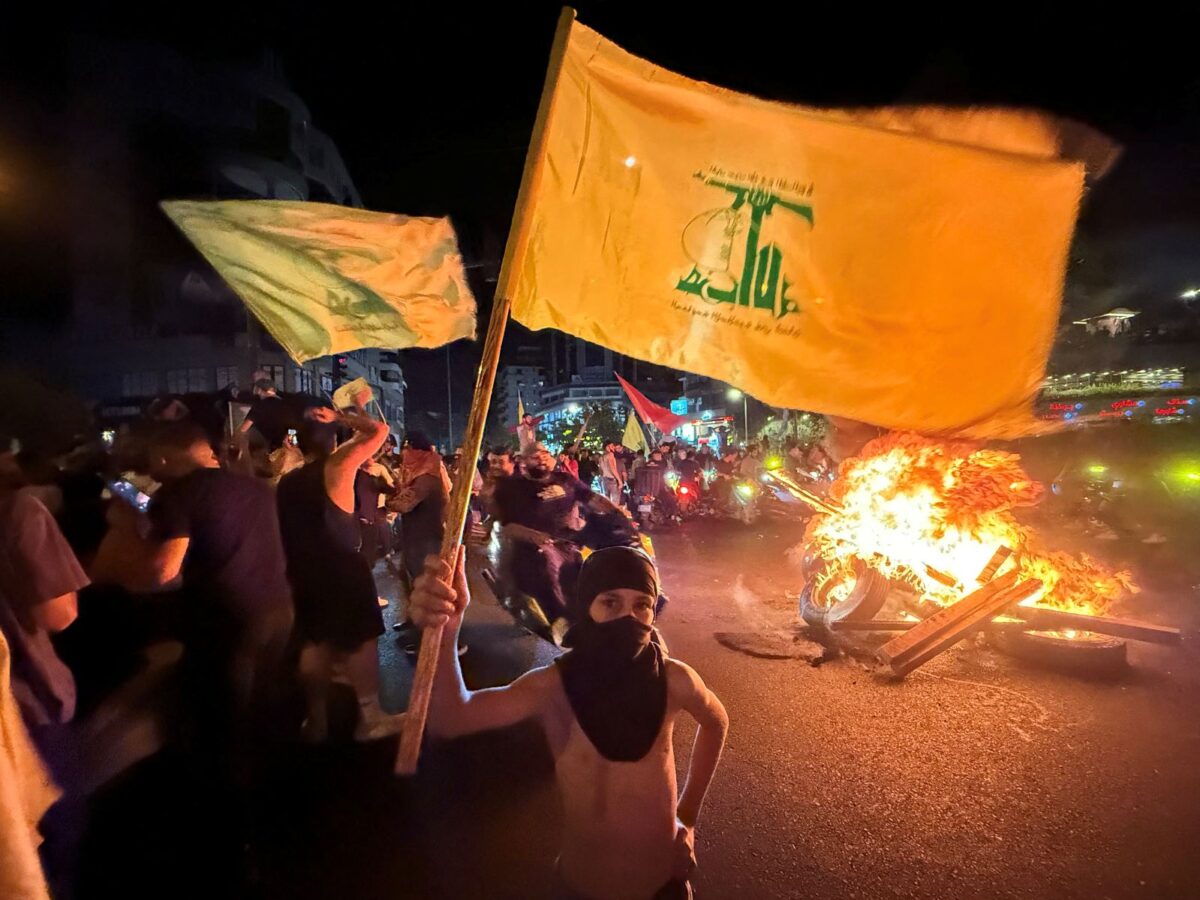
In recent weeks, the well-worn rhetoric of armed resistance has resurfaced once more. The usual voices of Hezbollah’s political front have returned to remind us of their supposed monopoly on national legitimacy, aggressively opposing any serious move toward disarmament. It’s a familiar discourse—recycled at every political crossroads—as if Lebanon can only be a state if it surrenders entirely to the rule of the gun.
Yet the undeniable truth is this: what is marketed today as “resistance weapons” ceased to be such long ago. The Iranian weapons and Milita in Lebanon is no longer a tool of liberation; it is a tool of internal domination. It serves to restructure Lebanon’s political, economic, and social order in the image of a transnational sectarian project. It is not the Israeli occupation that necessitates this arsenal—it is the arsenal itself that occupies Lebanon’s national decision-making.
The clearest evidence of this shift came just yesterday, when Lebanon’s Council of Ministers convened to discuss the matter of non-state weapons. The very fact that such a meeting took place is a tacit admission that this weapon is no longer a national consensus. Under Lebanon’s constitution, neither the cabinet nor the president holds the authority to legitimize militias. The discussion itself was an acknowledgment of a fracture: a recognition that this weapon has become a point of division within a broken state, and that the myth of “perpetual resistance” is no longer universally bought—or even believed.
More dangerously, the meeting highlighted the militias’ open contempt for the constitution. Hezbollah—the party accused of assassinating Rafik Hariri, destroying the Beirut port, and waging wars in Syria, Iraq, and Yemen—treats the Lebanese constitution as a mere prop. It upholds it when convenient, tramples it when expedient, and negotiates with it as if it were a disposable clause in a contract.
Even more absurd is the suggestion—made by some ruling factions—that the issue should be deferred to a “national dialogue table on defense strategy.” As if we were a normal country, calmly searching for consensus. This proposal is, quite frankly, a farce. It is nothing more than an attempt to recycle the debate, to blur the central demand: the application of the constitution. No defense strategy can be negotiated under internal occupation. No dialogue is genuine when one party wields a gun both above and beneath the table.
What truly unsettles Hezbollah today is the growing realization that its weapons no longer carry the same domestic weight. The frequent threats to repeat the events of May 7, 2008, when Hezballah and its allies tired to overthrow the cabinet of Fouad al Sanioura, no longer instill the same fear. The Lebanese people—of all sects—are watching their state collapse, gasping under the weight of economic ruin. They are no longer willing to remain silent or submit under threat of force. No one buys talk of “resistance” when they can’t afford bread or medicine. The weapon that once evoked “dignity” has become a burden—moral, financial, and strategic.
The days when Hezbollah’s secretary-general could appear on screen and declare Lebanon’s darkest hours as “glorious days” are long gone. That narrative no longer convinces even the party’s most loyal followers. Many in Lebanon’s Shiite community—those who have paid the steepest price in lives and livelihoods for Hezbollah’s regional adventures—have come to realize that the party no longer offers a national vision or an economic future. It offers only weapons and more war.
This logic of armed sectarianism cannot coexist with a functioning state. Judicial reform, public finance, and unified security are impossible while the state remains hostage to unchecked militia power. Anyone calling for disarmament is branded a traitor. Anyone rejecting “security zones” is accused of treason. And anyone crying out from beneath the rubble of the Beirut port is silenced. Meanwhile, “resistance” lives on—only in press releases, military parades, and video montages designed not to frighten the enemy, but to intimidate fellow Lebanese.
There is a profound difference between resisting occupation and occupying the state. Between confronting an enemy and ruling through force. The legitimacy of arms does not derive from slogans of victory—it comes from national consensus. And that consensus was shattered the moment Hezbollah turned its guns on fellow Lebanese, remained silent on Hariri’s assassination, and helped bury the truth in the port explosion.
Ultimately, Hezbollah must confront a deeper question of identity. Should disarmament occur, it would signal something far more consequential than the surrender of missiles or ammunition. It would require a full rebranding—political, financial, and ideological. That’s a costly transformation for a party long sustained by smuggling, Captagon trade, and border rackets—from Beirut’s port to Lebanon’s eastern frontier. Today, Hezbollah no longer holds popular legitimacy, Shiite unity, financial support, or even a compelling story.
The weapon it once proudly brandished has become a relic of the past. Modern wars are not fought with rifles—they are fought with intelligence, and increasingly with artificial intelligence—both of which the party appears to lack, as proven by its performance in the most recent conflict.
At this point, the issue is not merely Hezbollah’s weapons—it is the entire ecosystem that sustains them: a system built on a war economy, fear culture, and a never-ending conspiracy narrative. But Lebanon can no longer afford to be ruled by this wreckage. The time has come not only to disarm the militias—but to reclaim the dignity of the state.
And if the Council of Ministers chooses to postpone the issue yet again, it will be like spitting into a storm—only to have Hezbollah turn around and say:
“It’s raining.”
This article originally appeared in Nidaa al-Watan
Makram Rabah is the managing editor at Now Lebanon and an Assistant Professor at the American University of Beirut, Department of History. His book Conflict on Mount Lebanon: The Druze, the Maronites and Collective Memory (Edinburgh University Press) covers collective identities and the Lebanese Civil War. He tweets at @makramrabah







